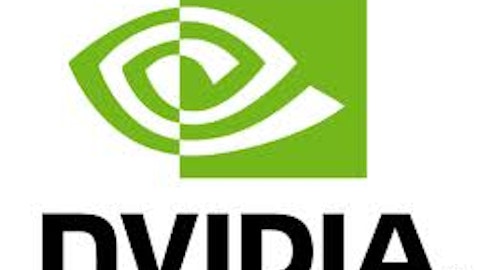The Russian search engine giant Yandex NV (NASDAQ:YNDX) recently surprised Wall Street by revealing that it has surpassed Microsoft Corporation (NASDAQ:MSFT)’s Bing to become the fourth biggest search engine in the world in terms of number of searches (according to ComScore’s 2012 data). A total of 4.6 billion searches were conducted on Yandex in November and 4.8 billion in December as opposed to Bing’s 4.5 billion searches in each of those months. However, this says more about the relative popularity of Microsoft’s sites than it does about changes within the search business. Ultimately this is good news for the growth of Russian Internet usage and Yandex itself, but Bing’s inability to truly grab market share from Google Inc (NASDAQ:GOOG) and Baidu.com, Inc. (ADR) (NASDAQ:BIDU) is a separate issue entirely.
| December 2012 data | |||
| Name | Stock YTD | Searches (Mn) | Unique Searches (Mn) |
| 11% | 114,734 | 1167 | |
| Baidu | -3.42% | 14502 | 293 |
| Yahoo Sites | 3.02% | 8630 | 292 |
| Yandex | 14.72% | 4844 | 74 |
| Microsoft Sites | 3.14% | 4477 | 268 |
Yandex is the dominant search engine in Russia, a country with 67.9 million Internet users that represent 13.1% of the total European Internet population, making it the biggest Internet market of the continent, ahead of Germany’s 67.4 million, the UK’s 52.7 million and France’s 52.2 million users. However, the German, French and British markets have more than ~80% Internet penetration while Russian users represent only 47.7% of the total population, which is significantly lower than the European average penetration of 63.2%. In terms of unique IP addresses only, Akamai Technologies, Inc. (NASDAQ:AKAM)’s ‘State of the Internet’ report states that Russia has 15.89 million IPs while Germany, France and UK have 81.7 million between them. The upshot is enormous opportunity for growth in Russia for Yandex as well as the rest of the Cyrillic-using world.
Online advertising is also on the rise in Russia and increased by as much as 35% in CY-2012 while total advertising in the country grew just 13% in the same period. Text based ads form the backbone of Yandex, and this is how the company has earned almost all (90%) of its $253.2 million in revenues in the third quarter; up 41% from last year. Net income came in at $74.2 million, up 34% year over year. Yandex holds more than 60% of Russia’s total market share, and until the end of its third quarter it had more than 202,000 advertisers, whose number is up 28% year-over-year and up 5% sequentially. The company’s dominance in Russia is expected to continue in the future as well, as Russian users prefer searches in their national language and Yandex does offer better user experience due to its strong network of local advertisers. Online advertising in Russia is expected to rise at an average rate of 22% until 2016, which will be reflected in Yandex’s revenues.
On the other hand, Microsoft has also reported its Q2-2013 results recently, in which it earned an EPS of $0.76 per share, 1 cent more than analysts’ estimates, coming from revenues of $21.46 billion and a net income of $6.38 billion. Microsoft’s online services division, which, according to Microsoft, gets “nearly all” of its revenues from Bing and MSN, has earned revenues of $869 million, an increase of $85 million from the same quarter last year while it narrowed its losses by 38% to $283 million. The relatively better performance was due to a 15% increase in online advertising revenues and a reduction in costs and marketing expenses. Bing is still far from being profitable, and comScore’s data has shown that its growth remained static in the final two months of 2012. Bing is moving slowly towards a breakeven, and analysts estimate that it will likely take more than two years. Nonetheless, Microsoft is committed to Bing and likes what is finally beginning to happen on the revenue front.
With the release of Windows 8, the rapidly increasing installed base of Windows Phone — if not in market share then in raw numbers — and the improvements in Internet Explorer to make it a more enticing product and stave off rising competition from Firefox, Safari and Chrome are driving the incremental gains in Bing’s advertising rates. Yandex is benefiting nicely from the installation onto Windows Phones sold in Russia, which could be the main driver for the very steep rise (313% over 2011 to a 5% market share) in WP8 handsets in Russia.
I like Yandex’s prospects as a gaggle of entry-level Windows Phones will hit Russia over the rest of Q1 and Q2. Phones from Nokia Corporation (ADR) (NYSE:NOK), Huawei, and HTC will all be released well under the $300 price point without a contract. I also like its moves into emerging markets like Turkey and into social media integration.
| Yandex | Microsoft | |
| Stock 6M | 20.90% | -8.42% |
| P/E | 33.69 | 15.31 |
| EPS | 0.74 | 1.82 |
| Yield | N/A | 3.30% |
| ROA | 15.60% | 13.41% |
| ROE | 25.10% | 22.62% |
The article Yandex Points to Central Asian Internet Growth originally appeared on Fool.com and is written by Peter Pham.
Copyright © 1995 – 2013 The Motley Fool, LLC. All rights reserved. The Motley Fool has a disclosure policy.






